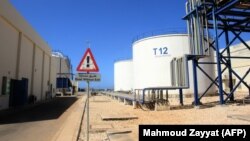The United States remains deeply concerned about endemic corruption in Lebanon and actively seeks to combat corruption both in Lebanon and around the world. For years, Lebanese elites have ignored the public’s calls for transparency and reform while shielding their own assets from depreciation by transferring their own money out of the country to other jurisdictions, explained Brian Nelson, Under Secretary of the Treasury for Terrorism and Financial Intelligence.
As part of ongoing U.S. efforts to combat corruption in Lebanon, the United States imposed sanctions on April 4 on Raymond and Teddy Rahme, two brothers who used their companies to secure energy contracts through a highly opaque process that undermined democratic institutions and the rule of law in Lebanon.
Raymond Rahme’s company, ZR Energy DMCC, won a December 2019 Lebanese Government contract to import 150,000 tons of fuel to help avoid a fuel crisis in Lebanon. Instead of importing quality fuel, however, this company imported a cheaper, tainted product, contributing to damage to critically needed power stations. The brothers profited from this scheme, even as the Lebanese people sank further into crisis.
While in most countries, electricity production increases state revenues, it has not done so in Lebanon, said Under Secretary Nelson:
“But despite spending tens of billions of dollars over the past decades, the ministry of electricity and the Électricité du Liban have left ordinary Lebanese vulnerable to the so-called “generator mafia” and the rest of the dysfunctional electricity sector has drained state funds and padded the foreign bank accounts of Lebanese businessmen.”
The United States prioritizes accountability, the rule of law, and democratic renewal in Lebanon irrespective of political affiliation or religion, said Under Secretary Nelson:
“The United States hears your calls for transparency and accountability; and to those choosing between continuing corrupt practices or creating change, know that we will continue to sanction those who profit from corruption, money laundering, and threats to the Lebanese people. We call on Lebanese politicians to end the political gridlock, elect a president, form a government, and undertake the reforms needed to pave the way for Lebanon’s economic recovery.”
“This is not the first time we have taken action against corrupt actors in Lebanon,” said Under Secretary Nelson. “And if corrupt activities continue, it will not be the last.”














